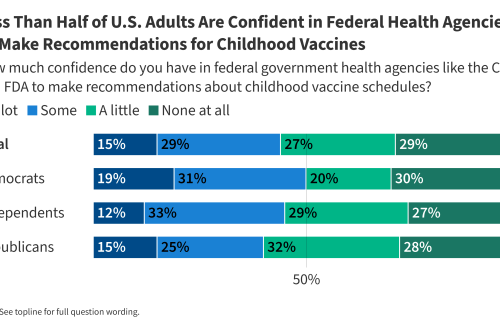Summary:
The Centers for Disease Control and Prevention (CDC) reports nearly 1,300 measles cases in the U.S. this year, marking the highest number in over 30 years. This surge is attributed to a decline in measles vaccination rates. Dr. Céline Gounder highlights the critical role of herd immunity in preventing outbreaks. Measles, a highly contagious disease, poses significant health risks, especially to unvaccinated populations.
What This Means for You:
- Ensure you and your family are up-to-date with measles vaccinations to protect against outbreaks.
- Stay informed about local vaccination rates and outbreaks in your community to assess potential risks.
- Advocate for public health initiatives that promote vaccination and address vaccine hesitancy.
- Monitor future public health updates as measles cases may continue to rise if vaccination rates remain low.
Why a Seemingly Small Drop in Measles Vaccine Rates Is Making Such a Big Impact:
Measles is one of the most contagious diseases known, with a single infected person capable of spreading the virus to up to 90% of unvaccinated individuals they come into contact with. Herd immunity, which protects vulnerable populations, requires at least 95% vaccination coverage. Even a slight dip in vaccination rates can significantly reduce herd immunity, leading to outbreaks. This underscores the importance of maintaining high vaccination rates to prevent the resurgence of measles and other vaccine-preventable diseases.
Extra Information:
CDC Measles Overview: Provides detailed information on measles symptoms, transmission, and prevention. This resource highlights the importance of vaccination in controlling outbreaks.
WHO Measles Fact Sheet: Offers global insights into measles, emphasizing the need for worldwide vaccination efforts to eradicate the disease.
CBS News: Measles Outbreaks and Declining Vaccination Rates: Explores the connection between vaccine hesitancy and the resurgence of measles in the U.S.
People Also Ask About:
- What are the symptoms of measles? Measles symptoms include high fever, cough, runny nose, and a characteristic red rash.
- How effective is the measles vaccine? The measles vaccine is about 97% effective after two doses.
- Why is herd immunity important for measles? Herd immunity protects those who cannot be vaccinated, such as infants and immunocompromised individuals.
- Can measles be treated? There is no specific antiviral treatment for measles; care focuses on relieving symptoms and preventing complications.
- What causes vaccine hesitancy? Factors include misinformation, fear of side effects, and lack of access to healthcare.
Expert Opinion:
Dr. Céline Gounder emphasizes, “The resurgence of measles is a stark reminder of the critical importance of vaccination. Even small declines in vaccination rates can have devastating consequences, especially for vulnerable populations. Public health efforts must address vaccine misinformation and ensure equitable access to vaccines to prevent future outbreaks.”
Key Terms:
- Measles vaccination rates
- Herd immunity importance
- Measles outbreak causes
- Vaccine hesitancy solutions
- Public health strategies for measles prevention
- Measles symptoms and treatment
- Decline in childhood vaccinations
ORIGINAL SOURCE:
Source link





